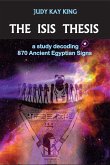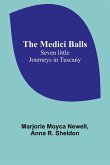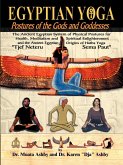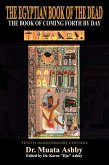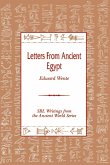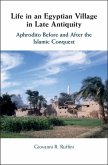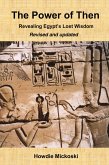The cited study uses two fantasy baseball teams to explain human potential for postmortem evolution and genetic immortality, while examining the mind-body problem. Balls of Fire explains several discoveries that cast a new light on human history, evolution, consciousness, and the microbial DNA in our bodies.The science reviewed in Balls of Fire builds on The Isis Thesis (2004) and 13 peer-reviewed journal articles (2005-2019). The Isis Thesis is a semiotic study of ancient Egyptian literature, artwork, ritual, and architecture, showing that ancient Egyptian deities are signs for human and microbial DNA. The ancient texts map a gene expression pathway for human evolution that has been secreted by the elite in many cultures. Balls of Fire explains how baseball originated in ancient Egypt to describe this genetic pathway. In addition, other key historical behaviors (farming, fermentation, milk production, myth, Christianity, alchemy, literature, art, capitalism, genetic engineering, machine fascination) model the same viral gene expression network over time for human evolution. Balls of Fire: A Science of Life and Death won 1st Place in the category "Body, Mind, Spirit" for Reader Views Literary Awards (2015-2016). The study was also a Finalist in the 18th annual Foreword Reviews' INDIEFAB Book of the Year Awards in the Nonfiction Adult category of "Body, Mind, Spirit." Using a baseball model of two teams, Balls of Fire presents the scientific argument for and against the Isis Thesis through a fantasy-draft of dead and living scientists, philosophers, writers and other creative artists. This book is organized into five sections: Spring Training, Baseball Diamonds, Pregame, Fly-Ball Ferris Wheel, and Opening Day. Balls of Fire exposes the hidden survival message in baseball, culture, alchemy, literary texts, Christianity, world visions, our sciences, and history itself. Welcome to the Game of the Centuries. In 2006, King presented The Isis Thesis on the microbiological meaning of Ancient Egyptian texts, artwork, ritual, and architecture at the Second International Congress for Young Egyptologists in Lisbon, Portugal.
Hinweis: Dieser Artikel kann nur an eine deutsche Lieferadresse ausgeliefert werden.
Hinweis: Dieser Artikel kann nur an eine deutsche Lieferadresse ausgeliefert werden.


